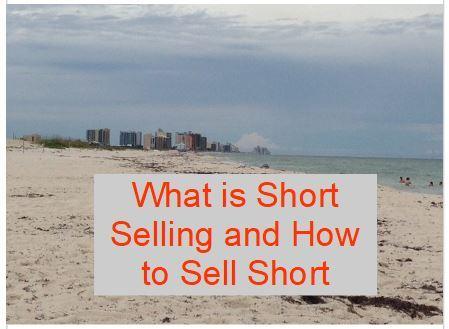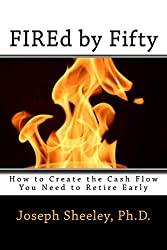
What is Short Selling?
Normally when you buy stocks, you do what is called “going long.” Here you enter an order to buy, purchase the shares, hope that they increase in price, then sell the shares to gain a profit. But, what if you think stocks are way overpriced, or you have a particular stock you think is way too high in price? You could wait until prices look better and then buy in like normal, but you could also do what is called “short selling.”
(Note, this site contains affiliate links. As an Amazon Associate I earn from qualifying purchases. When you click on an affiliate link and buy something, The Small Investor will get a small commission for the referral. You are charged nothing extra for the purchase. This helps keep The Small Investor going and free. I don’t recommend any products I do not fully support. If you would like to help but don’t see anything you need, feel free to visit Amazon through this link and buy whatever you wish. The Small Investor will get a small commission when you do, again at no cost to you.)
In short selling, you enter an order with your broker to sell the shares short. He then goes out and borrows the shares for you, sells them, and puts the money in your account. You then wait for the shares to drop in price. If they do, you buy shares in the market to replace the ones you sold short and keep the difference between what you made when you sold them and what they cost to replaced them. If the price goes up, you may need to buy them at a higher price and then you lose money. Theoretically, you could hold onto the short sale forever, but if the price goes up, you may start paying margin interest and even get a margin call if the price goes high enough. More on that in the next section.
Terminology and Nuances of Short Selling
Having defined a short sale, let’s go into some of the nuances of short selling. First some terminology:
Cover: To buy back shares that were sold short, closing the transaction.
Buy Long: To buy stocks or other securities in the normal fashion, such that increases in price result in profits.
Naked Short: A trade in which the shares are not borrowed before being sold short. This is an illegal transaction because it can allow for a great deal of shares to be sold short that don’t exist, upsetting the balance between buyers and sellers, causing price manipulation.
Short and Ultrashort ETFs: Funds designed to go down when the underlying index goes up, with equal percentages on a day-to-day basis. These are typically not recommended (see post DIG and DUG).

And now some nuances:
Tax implications: Short sales are always considered short-term trades, no matter how long they are held open, probably because short selling is considered somehow sinister or evil. (Disclaimer: Note that as with all tax advice, this should be checked with a CPA since I am not one and could be wrong).
Time Frame: Short sales are inherently short to mid-term investments. Because the tendency of the stock market is to increase in price, time works against the short sale. Going short a stock and then forgetting about it is not a good strategy. For this reason, selling short is more speculation than investment.
Risk: It is often said that short selling is more risky than buying long because your loss is limited when buying long (the stock can only go to zero), while a stock can go up forever. While this is technically true, the risk is manageable because stocks don’t go up infinite amounts as long as the investor is very disciplined and has a firm price target above which she will cover and close the transaction, no matter what. Note that if the company is bought out or other big news occurs, the stock may shoot right through the target, but even then stocks don’t usually just go from $10 to $500 in a day. Still, because time works against the short sale to some extent, there is more risk in selling short than going long.
An exception is when there is a short squeeze, as happened with GameStop stock. In that case the stock went from $2 to more than $400 before settling down and trading in the $50 to $100 range. This happened because about 90% of the shares outstanding were sold short. When some retail investors coordinated together through Reddit to push the price up, the shares rose exponentially as the people who had sold short needed to find the shares somewhere, at whatever price needed, to cover their short positions. The lesson here is to look at what is called the short interest, which says what percentage of the shares are sold short, and don’t buy stocks that have more than maybe 5% of the shares sold short. You might be right about the direction of the stock, but you’re taking a huge risk by jumping in with a bunch of other people.
Effect of bad positions: If one buys long and a stock goes down, while a loss is being taken, the position becomes a smaller and smaller percentage of the portfolio as the stock declines. With short selling, if the stock goes up, the position becomes larger and larger. If the amount owed for the short sale goes above the amount of cash in the account, the investor will need to add more cash or start paying margin interest to the brokerage (which is where firms actually make their money). If the stock rises far enough, a margin call can be executed that will force the investor to cover the position and lose substantial amounts. Also, if a loss is taken on a short sale, money must be found to pay for brokerage commissions in addition to the loss, where with selling at a loss on a long position at least the money gained from the trade will at least cover the brokerage costs.
Margin Interest: While a stock is sold short, it is a liability against the account. If there is not as much cash in the account as the value of the short sale, the investor will need to pay margin interest on the difference. Also, this cash will not receive interest (it is held against the short sale).
That’s the nuances. Now, when does it make sense to actually sell short?

(If you enjoy The Small Investor and want to support the cause, or you just want to learn how to become financially independent, please consider picking up a copy of my new book, FIREd by Fifty: How to Create the Cash Flow You Need to Retire Early This is the instruction manual on how to become financially independent.)
When, and If, You Should Sell Stocks Short
In general, short selling is a poor idea. Because the market has a natural upwards bias, time works against the short seller. Also, when you are wrong your losses grow and grow, forcing you to find additional cash or pay margin interest. In some cases you may actually be right about the final demise of a stock, but the fluctuations in the mean time force you to cover the position before the stock falls. I therefore only sell short in special situations.
The time when it may be worth selling short is when the market is so unbelievably over-valued, or the likelihood of the market falling is so great (like in the summer of 2008), that stocks in general, or at least in a certain sector, are much more likely to fall than to rise. In general, even in this case short selling is done only as a hedge for long positions – trying to offset losses in long positions by going short on other stocks.

Want all the details on using Investing to grow financially Independent? Try The SmallIvy Book of Investing
For example, in the summer of 2008 the housing bubble was threatening to burst. I owned a lot of retailer stocks that I knew would be hurt if consumers were no longer able to roll their credit card balances into their home loans, but I did not want to sell the stocks outright. I decided therefore that shorting some of the lenders would be a good hedge.
Since the lenders had been doing very well and the price of their shares had risen a lot over the past few years, I reasoned that their stocks were not likely to go much higher unless I was very wrong about their earnings prospects. I also felt that they would get hit hard when the ARMs reset and people stopped being able to make their payments. At least, I thought, that the number of new loans they would be making-which is where they made most of their money-would decrease, causing their stock price to fall since earnings would no longer be growing at their previous torrid pace. I therefore took up short positions in several lenders.

I also saw that oil prices were very high, and that the price of oil stocks was probably as high as it would get. I thought that if the economy slowed down, demand for gasoline would fall. Because the shares were already at high prices, I reasoned that they were unlikely to go a great deal higher.
Even though I was eventually right and did very well in 2009 while most were taking large losses, it was not uneventful. Shortly after I took up a short position in Golden West Financial, the stock was bought out, jumping from about $20 to the mid-thirties in a day. Eventually Golden West Financial gave great heart burn to the company that acquired them. I was right about the future of Golden West’s business, but that was of little solace to me because I had already lost quite a bit on the trade when the company was acquired (I had a similar experience with Snapple).
So to sum up, short selling can be profitable, but the interim movements of the stock you are shorting can cause losses, even if you are eventually right about the company. Also, just because a stock is very expensive doesn’t mean it can’t go higher for a while or that another company might not buy it out for even more money. I therefore only sell short when I believe there are systemic risks in the market and I wish to hedge against a fall rather than selling outright. I also only short stocks that I believe have gone up so much that they have more room on the downside than the upside.
Have a burning investing question you’d like answered? Please send to [email protected] or leave in a comment.
Disclaimer: This blog is not meant to give financial planning or tax advice. It gives general information on investment strategy, picking stocks, and generally managing money to build wealth. It is not a solicitation to buy or sell stocks or any security. Financial planning advice should be sought from a certified financial planner, which the author is not. Tax advice should be sought from a CPA. All investments involve risk and the reader as urged to consider risks carefully and seek the advice of experts if needed before investing.
